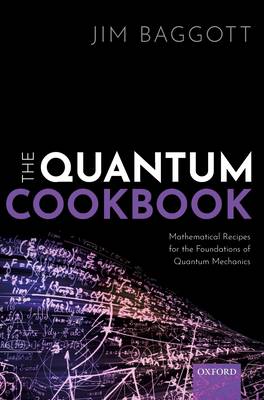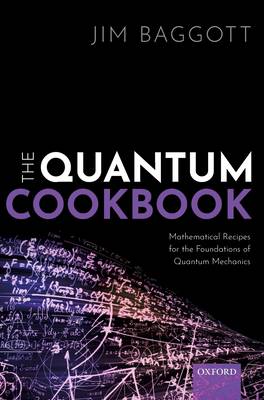
- Afhalen na 1 uur in een winkel met voorraad
- Gratis thuislevering in België vanaf € 30
- Ruim aanbod met 7 miljoen producten
- Afhalen na 1 uur in een winkel met voorraad
- Gratis thuislevering in België vanaf € 30
- Ruim aanbod met 7 miljoen producten
Zoeken
The Quantum Cookbook
Mathematical Recipes for the Foundations of Quantum Mechanics
Jim Baggott
Hardcover | Engels
€ 87,45
+ 174 punten
Uitvoering
Omschrijving
Quantum mechanics is an extraordinarily successful scientific theory. But it is also completely mad. Although the theory quite obviously works, it leaves us chasing ghosts and phantoms; particles that are waves and waves that are particles; cats that are at once both alive and dead; lots of seemingly spooky goings-on; and a desperate desire to lie down quietly in a darkened room. The Quantum Cookbook explains why this is. It provides a unique bridge between popular exposition and formal textbook presentation, written for curious readers with some background in physics and sufficient mathematical capability. It aims not to teach readers how to do quantum mechanics but rather helps them to understand how to think about quantum mechanics. Each derivation is presented as a 'recipe' with listed ingredients, including standard results from the mathematician's toolkit, set out in a series of easy-to-follow steps. The recipes have been written sympathetically, for readers who - like the author - will often struggle to follow the logic of a derivation which misses out steps that are 'obvious', or which use techniques that readers are assumed to know.
Specificaties
Betrokkenen
- Auteur(s):
- Uitgeverij:
Inhoud
- Aantal bladzijden:
- 320
- Taal:
- Engels
Eigenschappen
- Productcode (EAN):
- 9780198827856
- Verschijningsdatum:
- 10/03/2020
- Uitvoering:
- Hardcover
- Formaat:
- Genaaid
- Afmetingen:
- 173 mm x 246 mm
- Gewicht:
- 771 g

Alleen bij Standaard Boekhandel
+ 174 punten op je klantenkaart van Standaard Boekhandel
Beoordelingen
We publiceren alleen reviews die voldoen aan de voorwaarden voor reviews. Bekijk onze voorwaarden voor reviews.











